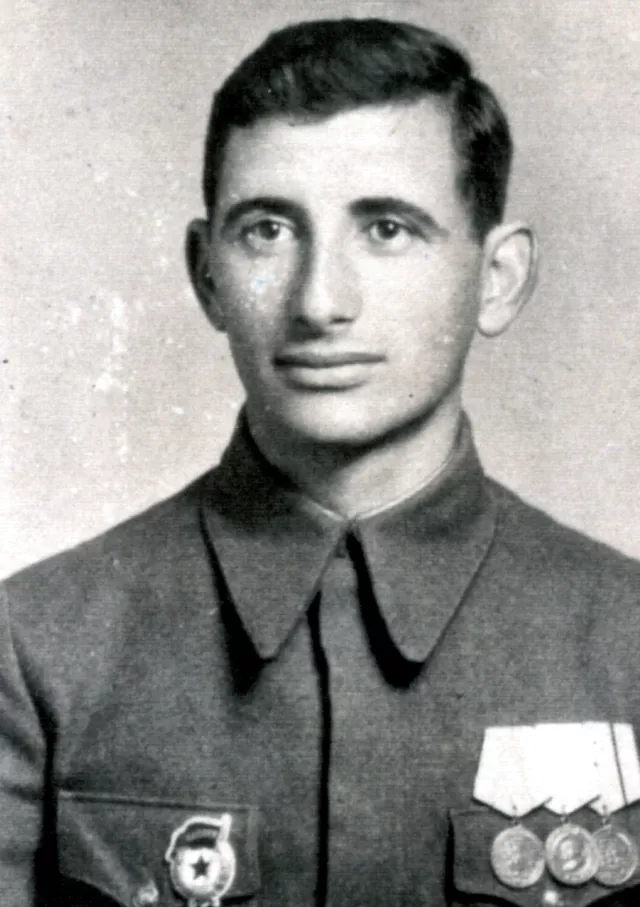Efim Finkel
It is me, Efim Finkel, upon demobilization from the army after I was wounded. The photo was made in Tashkent in 1945.
In 1944 there came a turning point in the war and it was clear that we were close to victory. In May 1944 I was wounded on my head. I had injury of my cranium and was taken to a hospital in Tashkent, Middle Asia, 2000 kms to the southeast of Odessa. Hospitals for severely wounded patients were located in the rear for safety reasons. I stayed in hospital until January 1945. I was demobilized after such severe injury. The war wasn't over yet, but Odessa region was free from Germans. I decided to go home. I received a pass from the military registry office to go to Odessa. I didn't have to pay any fares as a military. I had to change trains to get to my destination. In March 1945 I came home, but there was nobody there. Our house was occupied by some people whom I didn't know. Our neighbor told me that Germans issued an order for all Jews in Razdelnaya to come to the central square with their documents and clothes. Jewish families were certain that they were going to be accommodated at some place. All Jews were taken out of the village and told to leave their belongings in a heap. Jewish men were ordered to excavate a large pit. They probably understood then that they were making a grave for their families. Later all Jews were shot and thrown into the pit. Some of them were still alive when the pit was backfilled. Our neighbor told me that the soil was stirring for quite a while after the shooting he saw it. There were German guards with guns watching the area and nobody could approach this location. My parents, my mother's parents and my father's mother are buried in this grave. My friends and my dear ones were buried there. I also got to know that my father's sister and her children were shot in Belgorod-Dnestrovsky. Germans exterminated all Jews in towns and villages of Odessa region.











